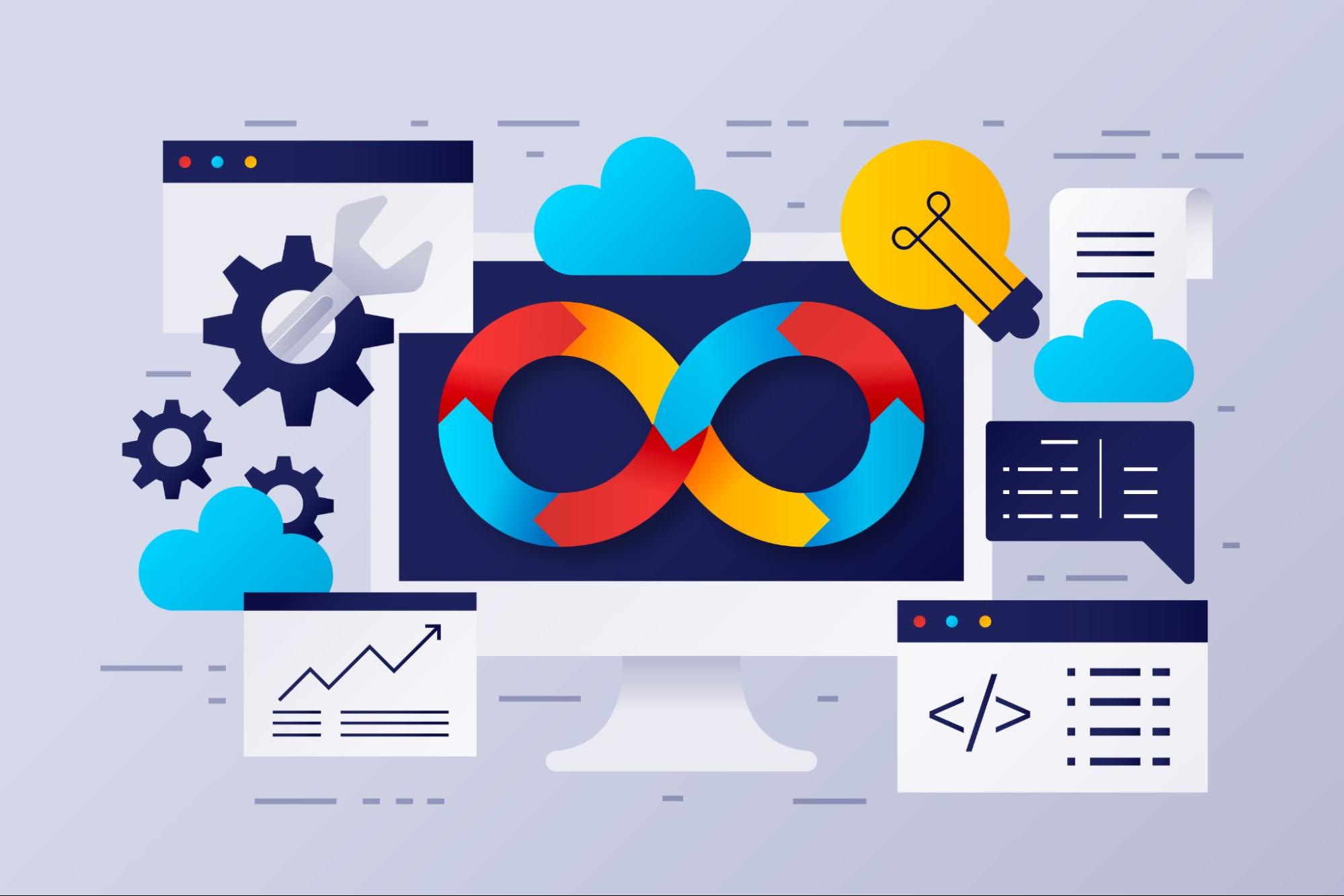In the evolving landscape of IT, everyone is desperate to know what is a devops engineer as the role of a DevOps engineer is becoming increasingly critical. A DevOps engineer is a multifaceted IT professional who must navigate both development and operations, fostering collaboration between traditionally siloed teams. This role requires not only technical prowess but also strong interpersonal skills to bridge the gap between different departments.
Breaking Down Silos
Organizations often find themselves structured in silos where development and operations work independently. Introducing DevOps to such environments requires significant organizational change. Successful DevOps implementation hinges on the right mix of people, culture, and tools. However, a major obstacle is the shortage of necessary skills within the workforce, as highlighted by Atlassian's 2020 DevOps Trends Survey.
What Is A DevOps Engineer?

An effective DevOps engineer blends technical expertise with the ability to connect and collaborate across teams. They are pivotal in transforming organizational structures, enabling seamless integration between development and operations, and ultimately driving efficiency and innovation.
What a DevOps Engineer Does?
A DevOps engineer is integral to bridging the gap between development and operations, ensuring a smooth and efficient software delivery process. What a DevOps engineer does involves a blend of responsibilities that encompass release engineering, infrastructure provisioning, system administration, and security. They manage the end-to-end process of building, deploying, and maintaining applications, leveraging tools and practices like Continuous Integration and Continuous Deployment (CI/CD) to automate and streamline workflows. Additionally, DevOps engineers advocate for a DevOps culture within their organizations, promoting collaboration and breaking down silos to enhance overall productivity. Their role is crucial in integrating technology and improving processes, thereby enabling more reliable and rapid software delivery.
Let’s get to know more about the role and responsibilities of DevOps!
Roles and Responsibilities of a DevOps Engineer
The role of a DevOps engineer varies across organizations but typically involves a blend of release engineering, infrastructure provisioning and management, system administration, security, and promoting DevOps principles. Here’s a closer look at these responsibilities:
Release Engineering
A critical aspect of a DevOps engineer's role is release engineering, which encompasses the processes needed to build and deploy application code. This involves:
- Selecting and Maintaining CI/CD Tools: Choosing the appropriate continuous integration and continuous deployment (CI/CD) tools.
- Automating Pipelines: Implementing and managing automated pipelines.
- Custom Scripting: Writing and maintaining custom scripts for build and deployment.
- Environment Management: Ensuring smooth deployments whether the production environment is on-premise or in the cloud.
The tools and processes involved in release engineering depend on various factors, such as the programming language used and the level of pipeline automation.
Infrastructure Provisioning and System Administration
DevOps engineers are responsible for deploying and maintaining the necessary infrastructure to host applications. This involves:
- Server Management: Deploying and managing physical or virtual servers.
- Storage Solutions: Provisioning and maintaining storage resources.
- Network Configuration: Setting up and managing networking resources.
- Data Center Management: For on-premise setups, this includes managing physical servers, storage devices, switches, and virtualization software.
- Cloud Management: For cloud-based or hybrid organizations, this involves managing virtual instances and related resources in the cloud.
DevOps Advocacy
One of the most crucial yet often overlooked responsibilities of a DevOps engineer is advocating for DevOps practices within the organization. This includes:
- Promoting DevOps Culture: Helping team members understand and adopt DevOps principles.
- Education and Evangelism: Serving as the DevOps subject matter expert and educating colleagues on best practices.
- Change Management: Facilitating the transition to a DevOps culture, which can be disruptive and confusing for some team members.
By effectively promoting DevOps, a DevOps engineer helps to create a more collaborative and efficient work environment.
Top 9 DevOps Engineer Skills

The specific technical skills a DevOps engineer needs can vary based on the team's structure, the technologies in use, and the toolsets employed. However, effective communication and collaboration are universally essential. A DevOps engineer should have a comprehensive understanding of the entire delivery pipeline and be familiar with the pros and cons of various tools and services. Here are the top 9 critical skills:
1. Communication and Collaboration
Effective communication and collaboration with teams, managers, and customers are crucial for a DevOps engineer. These "soft skills" are often undervalued but are vital to the success of DevOps. The quality and frequency of feedback throughout the value stream significantly impact the effectiveness of DevOps practices.
2. System Administration
A DevOps engineer should have extensive experience in system administration. This includes provisioning and managing servers, deploying databases, security monitoring, system patching, and managing internal and external network connectivity. A strong foundation in system administration ensures that the DevOps engineer can maintain the infrastructure needed to support development and operations.
3. Experience with DevOps Tools
Mastering a variety of DevOps tools is essential. A DevOps engineer must be adept at using tools that cover the entire DevOps lifecycle, including infrastructure management, building tools, monitoring tools, and operations tools. These tools help automate processes, improve efficiency, and ensure consistency across development and production environments.
4. Configuration Management
Experience with configuration management tools is often expected. Tools automate many system administration tasks, such as deploying new systems or applying security patches to existing systems. Familiarity with these tools enables a DevOps engineer to manage configurations effectively and maintain system integrity.
5. Containers and Container Orchestration
Containerization packages the application code and its runtime environment into a single image. This simplifies deployment but introduces new challenges. A DevOps engineer should be skilled in container management and familiar with container orchestrators. These tools help manage containers at scale, ensuring applications run smoothly in various environments.
6. Continuous Integration and Continuous Deployment
Continuous integration and continuous deployment (CI/CD) are core practices of the DevOps approach to software development. CI/CD tools automate the process of building, testing, and deploying software. DevOps engineers need to be experienced in configuring and deploying CI/CD tools and should collaborate closely with the development team to ensure the effective use of these tools.
7. System Architecture and Provisioning
A DevOps engineer should be adept at designing, provisioning, and managing computer ecosystems, whether on-premise or in the cloud. Understanding Infrastructure as Code (IaC) is essential, as it applies best practices from software development to cloud infrastructure management. Familiarity with tools for modelling system infrastructure is crucial.
8. Familiarity with Coding and Scripting
While traditional system administrators often write shell scripts for automation, a DevOps engineer needs to go beyond this. They should understand advanced software development practices, agile development methodologies, code reviews, and the use of source control. This knowledge allows them to implement more sophisticated automation and development processes.
9. Collaborative Management Skills
Cross-team collaboration is a cornerstone of an effective DevOps strategy. Whether the organization has separate teams for development, quality assurance, and operations or a unified team with distinct roles, a DevOps engineer should act as a coach and collaborator. They need to work with various stakeholders, such as QA teams, to enhance testing methodologies and with developers to improve build and deployment processes.
These skills equip a DevOps engineer to bridge the gap between development and operations, ensuring streamlined processes, enhanced collaboration, and robust, scalable systems.
The DevOps Team: Key Roles and Responsibilities

In a DevOps environment, the team is composed of various specialized roles, each contributing to the overall goal of efficient, reliable, and secure software delivery. Here are some of the crucial roles within a DevOps team:
DevOps Evangelist
A DevOps evangelist is an expert who advocates for and develops DevOps practices throughout the organization. While possessing a strong technical background, the primary focus of this role is on fostering interpersonal communication and process improvement. The evangelist works to break down silos and promote a collaborative DevOps culture.
Release Manager/Change Advisory Board (CAB)
In organizations that have not fully transitioned to DevOps or are in the early stages, there might be a separate group known as the Change Advisory Board (CAB) or an individual release manager. These roles ensure that new software releases meet quality and security standards and have the necessary management approvals. While historically crucial due to the risks associated with software releases, these roles are becoming less important with the advent of automated testing and deployment strategies.
Automation Expert
While every DevOps engineer should have expertise in automation, some organizations may have a dedicated automation expert or engineer. This individual focuses on managing CI/CD tooling and developing and maintaining automated test suites. Their role is critical in ensuring that the automation processes are streamlined and effective.
Software Developer
Software developers in a DevOps environment are responsible for writing application code, both front-end and back-end. Historically referred to as "computer programmers," these individuals are now integral to agile development processes, working closely with other DevOps team members to ensure seamless integration and deployment of new features.
Quality Assurance (QA)
The QA team is tasked with identifying software failures and ensuring that new application code does not disrupt existing functionality. Traditionally, QA engineers focused on manual testing, including smoke testing, regression testing, and integration testing. However, the role has evolved with the introduction of Software Development Engineers in Test (SDETs), who focus on writing automated test code to validate new applications before their release.
Security Engineer
In organizations where security and compliance have not yet been fully integrated into the development process, there is often a dedicated security engineer or team. This can be counterproductive, as it treats security as an afterthought. In contrast, integrating security into the design and development stages (a practice known as DevSecOps) ensures that applications are built with security in mind from the outset.
Each of these roles plays a vital part in a DevOps team's success, contributing to the seamless delivery of secure, high-quality software through collaboration and automation.
Beyond a Single Role: The Broader Scope of DevOps
DevOps is a comprehensive practice that necessitates cultural shifts, innovative management principles, and the integration of advanced technological tools. A DevOps engineer is pivotal in driving this transformation, possessing a diverse skill set to spearhead change. However, the success of a DevOps initiative relies on more than just one DevOps engineer. Organizations need a blend of generalists and specialists working together to enhance the software development lifecycle.
A DevOps engineer plays a crucial role in dismantling traditional silos, fostering collaboration among various experts, and ensuring seamless interaction across toolchains. This collaborative environment is essential for realising the full potential of DevOps, leading to more efficient, reliable, and high-quality software development and delivery.




